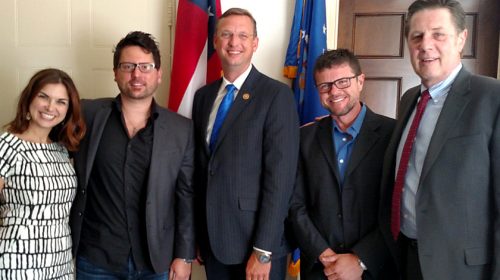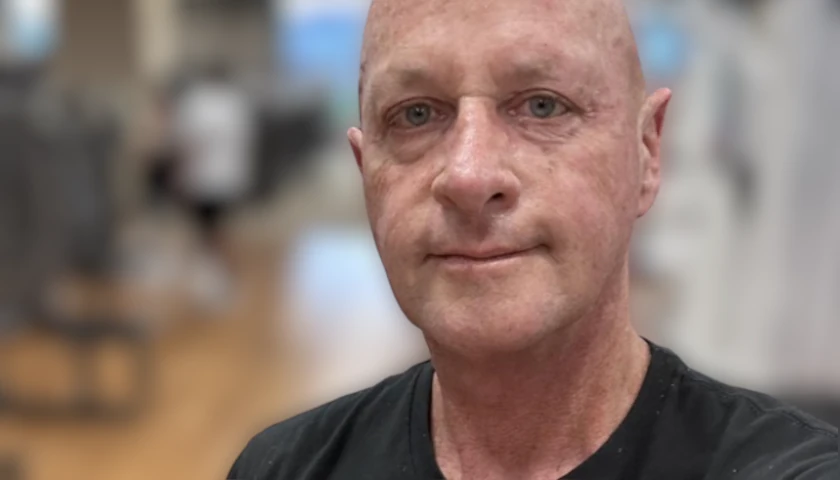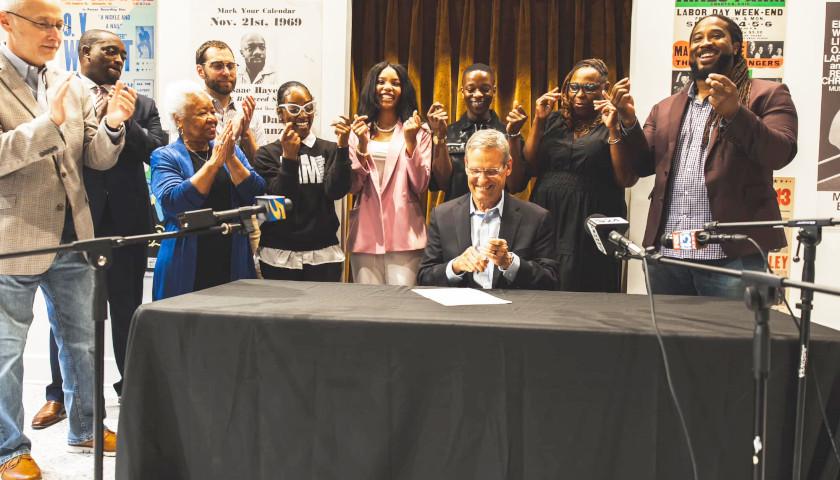NASHVILLE, Tennessee — Before I moved to Nashville eight years ago, I toyed with the idea of being a songwriter, at least part-time. It took about 5 minutes before every songwriter I have known nixed the idea immediately. It was/is virtually impossible to make a living do it, no matter how good you were/are.
Since the dawn of the digital streaming age, things have changed for songwriters and not in a good way. The music copyright laws that we are still using were created in 1909 and 1941 and they absolutely do not make any sense today. To figure all this out, I sat down with the Nashville Songwriter’s Association International’s (NSAI) Executive Director, Bart Herbison. What I got was a history lesson.
The first copyright law was first written in 1909 not too long after Edison first recorded sound. At this point the songwriters still have some control of their music. Then two copyright laws emerged. The sound recording royalties which had little government control was overseen by record labels. The musical work or mechanical royalties in which the government arbitrarily set the sales royalties by a “crazy standard of evidence” that says you will pay the songwriter so little that the consumer won’t see the difference in the cost of sheet music or a player piano roll. The songwriters got a penny for each sale. And the rate is compulsory where the songwriter(s) has to license that song to the record label whether or not they agree with the rate.
Radio was invented in 1929 and the second copyright law was enacted about ten years later. The government decided to regulate radio by putting performance rights organizations such ASCAP, BMI, SESAC and GMR in charge of the performer’s royalties when their song is played on radio, TV, live venue or now digital streaming. However, the songwriters’ royalties were still under the “wacky standard of evidence” that judges had created earlier. In the 1990’s, the record labels had minimal regulation while the songwriters were/are highly regulated. Then enter the digital streaming and record labels and artists end up getting as much of 1400% more than a songwriter.
For example, one of the co-writers on Trace Adkins’s highly popular song You’re Gonna Miss This got ¼ the royalties from 35 million plays. Do you know how much money he got? $185.00. Herbison simply states, “Songwriters under too much government control don’t get paid in the streaming age.”

Not only do songwriters not get paid, even record labels and performing artists recognize that there is no money to be made off CD’s or albums. They must tour and sell merchandise to turn a profit. Radio still does alright because of paid advertising but digital radio and streaming are now becoming the norm as consumers pay for subscription services per month what they used to pay for one CD or record. It was reported that the digital Sirius radio revenue climbed 8% in 2017 to a record $5.4 billion dollars. That is more than 1/3 of all music industry revenue worldwide.
Thus, the Music Modernization Act (MMA) was created to take away the arbitrary way in which judges decide how much songwriters get paid. Instead they will get paid “what they are worth in the market place.” If passed, the songwriters should get “healthy pay raises.”
Yet even with the bi-partisan support and having a champion in Tennessee’s own Senator Lamar Alexander, there still have been hurdles to jump. Specifically, getting all stakeholders involved (songwriters, publishers, performance rights organization, broadcast radio, digital radio and steaming companies) to agree on the appropriate language. “There are some technical and budgetary things that have to get worked out,” states Herbison. “However, all stakeholders want to get this done and that in itself is unprecedented.”
Right now streaming companies (Apple, Amazon, Spotify, Pandora, etc.) get their music from four places, ASCAP, BMI, SECAC and GMR. They pay record labels for performance royalties. But in order to pay the songwriters, every single song must be licensed (which is more than 15 million currently). It is virtually impossible to keep track of. The MMA has been written so that songwriters and publishers will be paid a by a blanket license for mechanical sales. The data will be kept in a non-profit database called the Musical Licensing Collective which is owned and run by the publishers and songwriters. It is actually cheaper for streaming companies to let the publishers pay the songwriters than for them to keep track and do it themselves.
As I was waiting for my interview at NSAI offices on Music Row, I was waiting with two aspiring song writers. One was a hipster 30-something year old songwriter from Boston who looked like he knew what he was doing. The other had to be young teen with guitar, cowboy hat and a notebook full of songs who was “fixing to move to Nashville.” I asked Herbison what he tells the masses who daily walk through the door with a big dream and a song in their heart. He said, “If their goal is be a songwriter only and not an artist, we counsel them. [Statistically] there will be way more new starters on the Tennessee Titans Football team than there will be songwriters from Nashville who can make a lot of money.”
The good news is that Herbison feels confident that they can get the MMA passed this session. However the Copyright Royalty Board which oversees the mechanical royalty rate procedure only meets once every five years. The next time they are to meet is in four years. So it will still be some time before songwriters can receive adequate and appropriate compensation that they deserve.
Steven Tyler so succinctly said to Billboard Magazine, “Songwriters are the unsung heroes of the music industry; what improves their ability to create will improve the entire ecosystem. We need to make the chorus for the MMA so loud that songwriters can no longer be ignored.”
As I interview young talent for my Music Spotlight column, it seems that more and more performers are writing their own music. However it didn’t use to be this way. As much as we loved Elvis, Barbara Streisand and Madonna, they rarely wrote their own music. Many popular artists depend on the songwriters for their success. As singer/songwriter Kenny Chesney aptly said in the bridge of his anthem I Go Back “We all have a song that somehow stamped our lives / Takes us to another place and time.”
From births to weddings to funerals, music is integral to almost every event of our lives in every nearly every culture in world. The songs are part of our memory and DNA. This is why must get this right for the songwriters.
– – –
Bethany Bowman is an entertainer writer for the The Tennessee Star. You can follow her on Twitter and Instagram.
Pictured above: Nashville Songwriter’s Association International‘s Sr. Director of Operations Jennifer Turnbow, songwriter Chris DeStefano (“Something in the Water”), Cong. Doug Collins (R-GA) and NSAI Past President Lee Thomas Miller (“You’re Gonna Miss This”)






[…] As previously reported by The Tennessee Star, the bill, sponsored by retiring Utah Sentor Orrin Hatch, was designed to update the outdated copyright laws governing songwriting to reflect the realities of the 21st century. […]
[…] previously reported by The Tennessee Star, the bill, sponsored by retiring Utah Sentor Orrin Hatch, was designed to […]